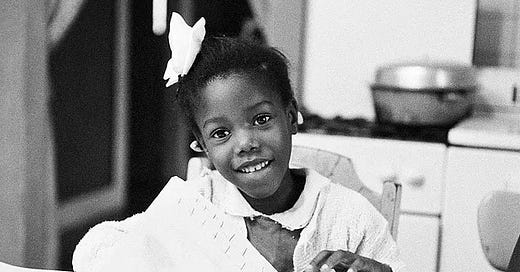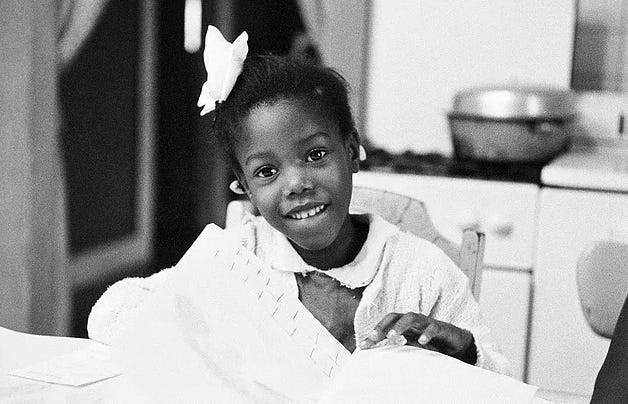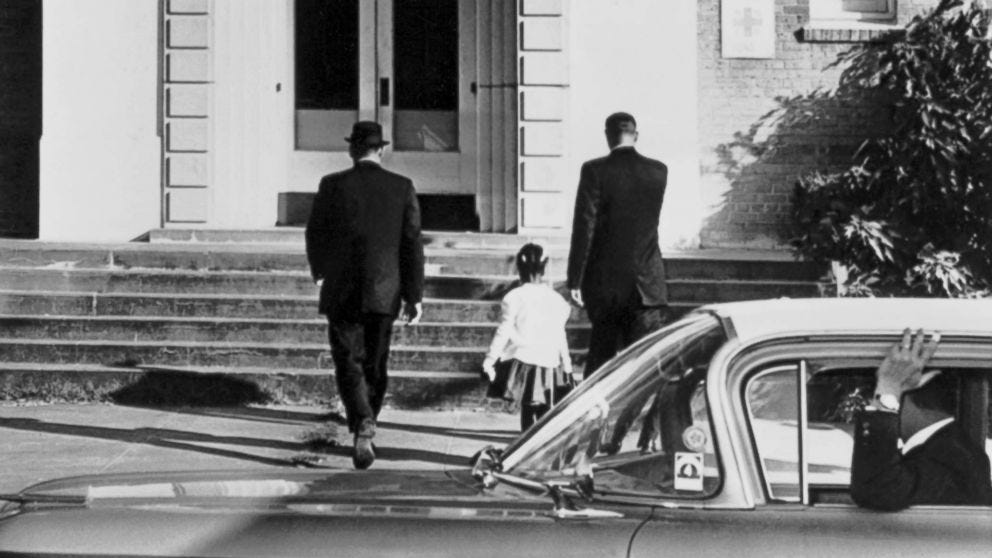Welcome to One Mic History Newsletter. Thank you for your continued support. Today, we delve into the story of Ruby Nell Bridges, the first Black child to attend the previously all-white William Frantz Elementary School.
Born on September 8, 1954, Ruby was raised in a family of sharecroppers who relocated from Mississippi to Louisiana in search of improved work opportunities.
Remarkably, Ruby’s birth year coincided with the Supreme Court's landmark Brown v. Board of Education verdict that declared the segregation of children in public schools unconstitutional. Despite this, Southern schools resisted integration, with less than 2% successfully integrating by 1957. As such, Ruby attended the segregated Johnson Lockett elementary school.
In 1960, to comply with a federal court order, the New Orleans School Board was compelled to initiate a desegregation plan for their public schools. This involved a specially difficult entrance exam for African-American students, an attempt to maintain segregation. However, Ruby passed the test and was permitted to attend the previously all-white William Frantz Elementary School.
Ruby's journey was far from smooth. Both her parents initially feared the consequences of sending their daughter to a white-majority school. However, after being convinced by Ruby's mother, and learning that she was one of only six African-American students who'd passed the entrance exam, they decided to let her attend.
As predicted, Ruby's first few days at Frantz School were tumultuous, with protesting crowds hurling objects and racial slurs. Despite the challenging environment, Ruby, flanked by federal marshals, made her way to school every day.
One standout figure in Ruby's journey was Barbara Henry, the only teacher willing to educate Ruby at Frantz. The two developed a unique bond, and Ruby has often referred to Henry as “the kindest teacher I ever had.”
Ruby's first-grade year also resulted in significant hardship for her family, with her father losing his job and her grandparents being forced off their land. In the face of these challenges, support from both the Black and white communities, including a job offer to Ruby's father and donations from across the country, proved instrumental in keeping the family afloat.
Gradually, situations began to improve. By the end of her first year, more families began sending their children to Frantz. The protests subsided, paving the way for some semblance of acceptance and normalcy.
Today, Ruby continues to champion civil rights as a passionate activist and author of numerous publications. She wants people especially kids to learn to be kind to each other.
"There's a message that I often leave with kids, and it's that racism has no place in the hearts and minds of our children," Bridges says. "If we're going to get past our racial differences, I believe it's going to come from our kids." "What I find is that my story resonates with kids," "They put themselves in the shoes of this little girl, and they understand the loneliness, and they understand someone not wanting to play with them. I think they get it."
Thank you for joining us today. For more engaging stories, visit One Mic History. Your continued support is greatly appreciated, we love you all.
-Countryboi






